Filter by
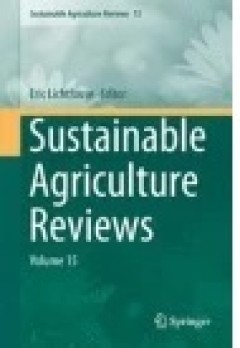
Sustainable Agriculture Reviews
Sustainable agriculture is a rapidly growing field aiming at producing food and energy in a sustainable way for humans and their children. Sustainable agriculture is a discipline that addresses current issues such as climate change, increasing food and fuel prices, poor-nation starvation, rich-nation obesity, water pollution, soil erosion, fertility loss, pest control and biodiversity depletion…
- Edition
- Volume 17
- ISBN/ISSN
- 978-3-319-16742-8
- Collation
- VI, 366
- Series Title
- Sustainable Agriculture Reviews
- Call Number
- -
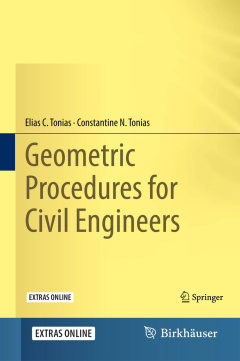
Geometric Procedures for Civil Engineers
This book provides a multitude of geometric constructions usually encountered in civil engineering and surveying practice. A detailed geometric solution is provided to each construction as well as a step-by-step set of programming instructions for incorporation into a computing system. The volume is comprised of 12 chapters and appendices that may be grouped in three major parts: the first is …
- Edition
- -
- ISBN/ISSN
- 978-3-319-24293-4
- Collation
- -
- Series Title
- -
- Call Number
- -
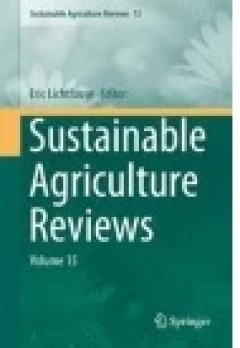
Sustainable Agriculture Reviews
Sustainable agriculture is a rapidly growing field aiming at producing food and energy in a sustainable way for humans and their children. It is a discipline that addresses current issues: climate change, increasing food and fuel prices, poor-nation starvation, rich-nation obesity, water pollution, soil erosion, fertility loss, pest control and biodiversity depletion. This series gathers review…
- Edition
- -
- ISBN/ISSN
- 978-3-319-09132-7
- Collation
- IX, 407
- Series Title
- Sustainable Agriculture Reviews
- Call Number
- -
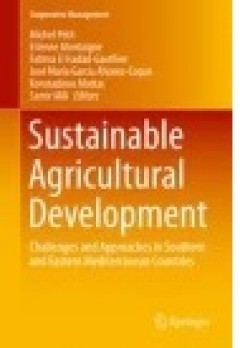
Sustainable Agricultural Development
This book provides an up-to-date assessment of sustainable agri-food systems and rural development in the Mediterranean countries. It examines and reviews the impact of EU and national policies on environmental and trade issues in agricultural and rural organizations in the southern and eastern Mediterranean region. The book also reflects key socio-economic and political issues such as resource…
- Edition
- -
- ISBN/ISSN
- 978-3-319-17813-4
- Collation
- XIX, 334
- Series Title
- Cooperative Management
- Call Number
- -
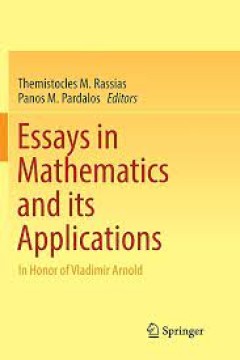
Essays in Mathematics and its Applications In Honor of Vladimir Arnold
This volume, dedicated to the eminent mathematician Vladimir Arnold, presents a collection of research and survey papers written on a large spectrum of theories and problems that have been studied or introduced by Arnold himself. Emphasis is given to topics relating to dynamical systems, stability of integrable systems, algebraic and differential topology, global analysis, singularity theory an…
- Edition
- -
- ISBN/ISSN
- 978-3-319-31338-2
- Collation
- 52 b/w illustrations, 22 illustrations in colour
- Series Title
- -
- Call Number
- -
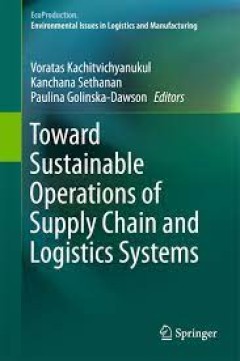
Toward Sustainable Operations of Supply Chain and Logistics Systems
This book addresses critical issues in today’s logistics operations and supply chain management, with a special focus on sustainability. In dedicated chapters the authors address aspects concerning multimode logistics operations, reverse network configuration, forward and reverse supply chain integration, improvement of the production operations and management of the recovery activities, as w…
- Edition
- 1
- ISBN/ISSN
- 978-3-319-19005-1
- Collation
- XI, 550
- Series Title
- EcoProduction
- Call Number
- -
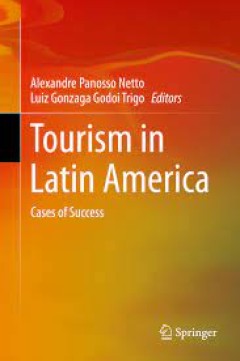
Tourism in Latin America
This book presents eleven case studies of success about Latin America tourism. The cases are embedded in a framework describing the economic and cultural foundations of tourism development in the continent. Mexico, Brazil, Chile and Costa Rica are some of the Latin countries which have become examples and models for touristic development, respect for the environment and social inclusion. The bo…
- Edition
- 1
- ISBN/ISSN
- 978-3-319-05734-7
- Collation
- XII, 246
- Series Title
- -
- Call Number
- -
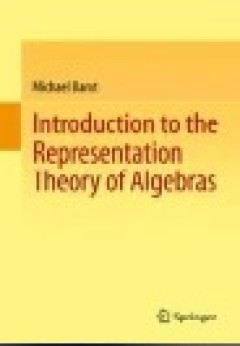
Introduction to the Representation Theory of Algebras
This book gives a general introduction to the theory of representations of algebras. It starts with examples of classification problems of matrices under linear transformations, explaining the three common setups: representation of quivers, modules over algebras and additive functors over certain categories. The main part is devoted to (i) module categories, presenting the unicity of the decomp…
- Edition
- -
- ISBN/ISSN
- 978-3-319-11475-0
- Collation
- -
- Series Title
- -
- Call Number
- -
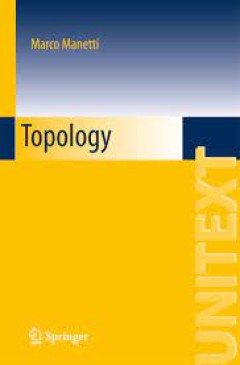
Topology
This is an introductory textbook on general and algebraic topology, aimed at anyone with a basic knowledge of calculus and linear algebra. It provides full proofs and includes many examples and exercises. The covered topics include: set theory and cardinal arithmetic; axiom of choice and Zorn's lemma; topological spaces and continuous functions; connectedness and compactness; Alexandrov compac…
- Edition
- 1
- ISBN/ISSN
- 978-3-319-16957-6
- Collation
- XII, 309
- Series Title
- UNITEXT
- Call Number
- -
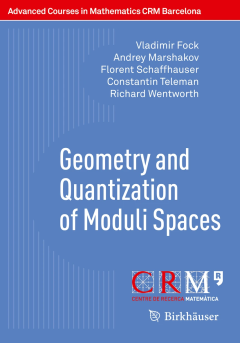
Sistem ketertelusuran cangkang sawit berkelanjutan
This volume is based on four advanced courses held at the Centre de Recerca Matemàtica (CRM), Barcelona. It presents both background information and recent developments on selected topics that are experiencing extraordinary growth within the broad research area of geometry and quantization of moduli spaces. The lectures focus on the geometry of moduli spaces which are mostly associated to comp…
- Edition
- -
- ISBN/ISSN
- 978-3-319-33577-3
- Collation
- X, 220
- Series Title
- -
- Call Number
- 550 FOC g
 Computer Science, Information & General Works
Computer Science, Information & General Works  Philosophy & Psychology
Philosophy & Psychology  Religion
Religion  Social Sciences
Social Sciences  Language
Language  Pure Science
Pure Science  Applied Sciences
Applied Sciences  Art & Recreation
Art & Recreation  Literature
Literature  History & Geography
History & Geography